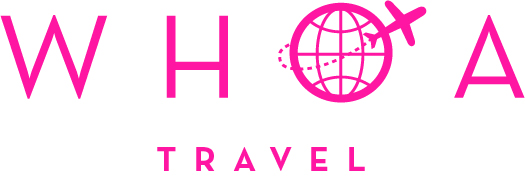How to deal with your period while traveling, and empower women around the world, too!
While traveling around India last year, through cities and villages, by plane, train, rickshaw, and foot, things became increasingly difficult when I realized I had gotten my period...And of course, the one thing I forgot to pack was my tampons!
Tampons are nearly impossible to locate in stores in India there due to their cultural stigma (ugh!) and expensive prices. They’re also extremely wasteful, and for a country with such a large population, this creates huge environmental issues.
Being a fast pase traveler who isn’t afraid of much, I knew I wouldn’t let such a pesky problem like my period keep me from my adventures that day. So, I decided to get creative. I first tried to locate a bathroom, which was hard to do in the first place. But when I got there, there was no toilet paper (a common occurrence in India)! So, I made a makeshift pad out of rubber bands and my bandana. I was quite proud of my reusable creation!
However, I did discover an easier solution. During my travels, I met a friend who told me about a thing called the Diva Cup. It’s a small, 3-inch surgical grade silicone cup that you fold and insert into the vagina to collect period flow rather than absorb it like the traditional tampon or pad. Because it’s reusable, it comes in super handy for travel, and is also much healthier and sanitary for a woman’s body.
As someone who has used a menstrual cup, I will admit, it has some basic hurdles. It can get messy. It needs to be cleaned and emptied between uses, which is difficult in the developing world due to the lack of public bathrooms with readily available and clean water. For many local women, as well as women around the world, the high price point of $40 USD is a turn-off, making the market slim and the product sparse.
In 2014, female entrepreneur and badass feminist Miki Agrawal created THINX period-proof panties with a mission of giving back, a solution to everyone's period stained underwear problems and tampon-less travel experiences. The panties function as full acting pad, but they are washable, reusable and incredibly stylish.
What’s more cool is that for every pair you buy, THINX donates money to local pad production company in West Africa that employs over 165 local women. When asked why she chose to partner with AFRIpads rather than donate her products to the developing world, Miki nailed the response:
“If you’re a shoe-maker in Uganda, working day in and day out, and then an influx of free shoes comes in, what happens to your business? You’re in trouble. We didn’t want to just give pads away, because that would contribute to the welfare model. We wanted to create a model that would help people be self-sustaining.”
For women living in poverty, lack of access to menstrual products creates numerous burdens to their health and stifles social advancement. Girls try using anything they can find to absorb the blood, even creating soft wooden bamboo pads or shoving dirt in their underwear because they can’t afford the cost of what should be considered a basic necessity.
When I was in India, I helped build outhouses for families with young girls and women who did not already have one. In many villages, having a place to go to the bathroom is a privilege, and the women who do not have this space have to go to the fields during the night to dispose of their waste, creating a high risk of sexual assault.
Women not having access to sanitary products also creates a seriously broken societal infrastructure. Nearly three-fourths of girls end up skipping school while menstruating, and missing 4-5 days of school once a month really starts to add up. Soon, girls start dropping their classes all together because they can't keep up, lowering the education rate of women worldwide.
Clearly, this is a problem and needs to be addressed. So the company is also launching THINX Global Girls’ Club, in partnership with local organizations all over the world, which Argrawal says, “will be a safe space for girls to learn about their bodies, as well as about self defense and personal finance.”
We at WHOA are inspired by THINX’s accessibility approach. Like THINX, we strive to connect with local women in the regions we visit, while making adventure experiences more accessible for everyone. Our unique mission combines socially responsible travel and shared experiences with local women and their communities. This two-fold model allows everyone to truly immerse, connect, and empower each other through the power of shared experiences.





